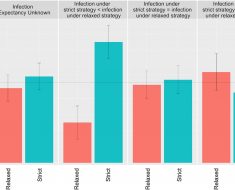Hypnosis can be better than behavioural therapies at helping people quit smoking in the long run, according to Stanford doctors, who have now developed an app that can make self-hypnosis accessible to people.
“Our study shows that after just one session of face-to-face hypnosis, nearly half the people stopped smoking. And, 23% remained complete non-smokers, not even a single cigarette for two years,” said Dr David Spiegel.
He is the Willson Professor and Associate Chair of Psychiatry and Behavioral Sciences, and Director of the Center on Stress and Health and the Center for Integrative Medicine at Stanford University School of Medicine.
A preliminary study on the app developed by his team shows the quit rate in people who tried the self-hypnosis using the app was 21% at one month. “We are still awaiting results on how effective the app based approach is in the long run,” he said.
Experts from India say that hypnosis is no longer in use in India as more effective treatments are available now.
“Hypnosis is no longer used in India as a treatment method and is not one of the recommended methods of treating psychiatric disorders, including addictions. This is because there are a lot of variable — the effectiveness of hypnosis depends on the person conducting the session, whether the person is susceptible to hypnosis. Now, there are many drugs and therapies that are very effective,” said Dr Rajesh Sagar, professor of psychiatry at All India Institute of Medical Sciences, Delhi.
Another study published in the Nicotine and Tobacco Research Journal, 29% of the people who underwent hypnosis along with nicotine patch treatment abstained from smoking at the seven-day mark as compared to 23% of the people who underwent behavioural therapy along with nicotine patch. The gap, however, widened at the six month mark, 26% abstained in the hypnosis group as compared to 18% in the behavioural therapy group.
The trend persisted at the one-year mark, with 20% people who underwent hypnosis staying away from cigarettes as compared to 14% in the behavioural therapy group.
In India, tobacco caused 1 in 20 deaths in women and 1 in 5 deaths in men in 2010, found a New England Journal of Medicine study that also put the number of adult tobacco-related deaths at 9,30,000 in one year.
As part of its tobacco cessation programme, the Indian government provides free behavioural counselling over telephone on the national quitline 1800-11-2356.
If proven effective, the app based hypnosis could be beneficial for a resource-poor country like India as it will eliminate the need for a face-to-face or telephonic interaction with a counsellor.
Hypnosis, is very much like mindfulness meditation, but uses a focussed approach to deal with a specific problem.
“Self hypnosis takes a person to a space where there is no critical judgement. Unlike shown in movies, there is in fact an increase in self control in such a state that can be used to alter a person’s thinking or behaviour,” said Dr Spiegel.
First Published: Oct 10, 2018 17:12 IST
Source: Read Full Article





